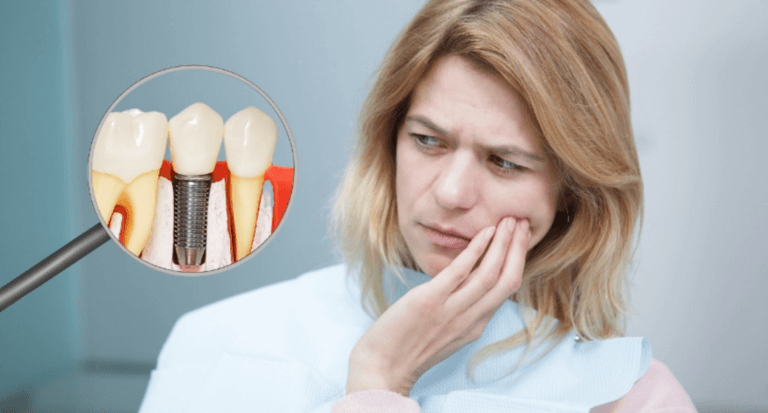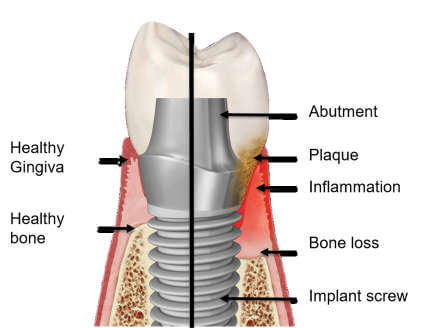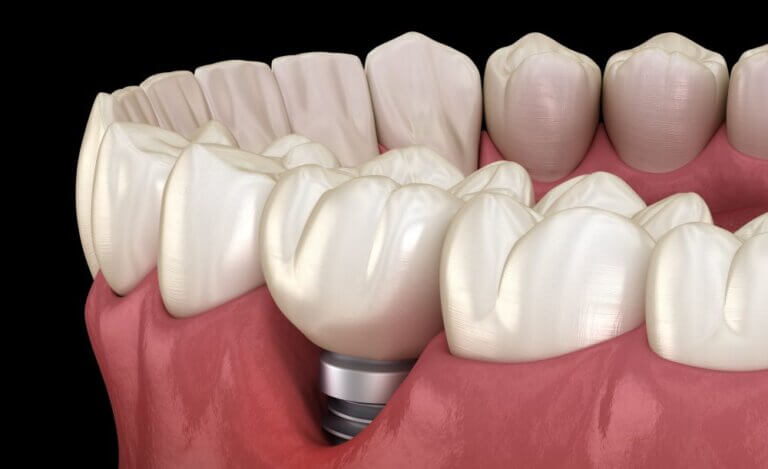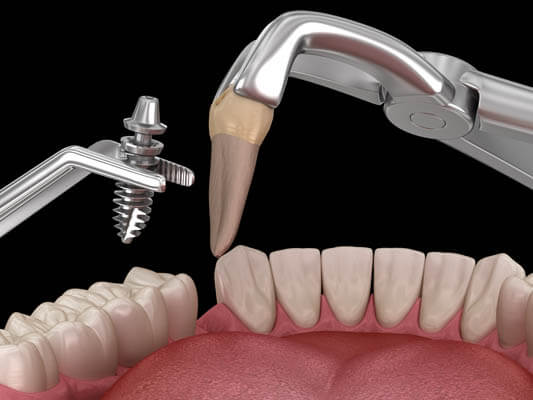Dental Implant Pain

What Causes Dental Implant Pain?
Dental implants are an excellent solution for replacing missing teeth, offering durability and a natural appearance. However, some patients can experience discomfort or pain associated with their implants. Understanding the causes, symptoms, and treatment options for Dental Implant Pain is essential for maintaining oral health and ensuring the longevity of your implants.
Before you contact a Toronto dentist to examine your dental implant pain, there are some things you should know as a patient:
- Causes For Dental Implant Pain
- Signs And Symptoms Of Dental Implant Pain
- Types Of Dental Implant Pain
- Treatment Options For Dental Implant Pain
- Managing Dental Implant Pain Until You Can See The Dentist
- Frequently Asked Questions About Dental Implant Pain
If you have questions about Dental Implant Pain or other dental problems, please contact us for more information
Causes of Dental Implant Pain
Several factors can contribute to pain after receiving dental implants, including:
- Surgical Procedure Recovery: Mild pain and swelling are common immediately after implant placement as your body heals from the procedure.
- Improper Placement: Misaligned implants may exert pressure on surrounding nerves or tissues, causing discomfort.
- Infection (Peri-implantitis): Infections can occur around the implant site, leading to inflammation, pain, and potential bone loss.
- Bone Insufficiency: Insufficient bone to support the implant can result in pain and implant instability.
- Gum Recession: If the gum tissue recedes, the implant’s metal surface may become exposed, causing sensitivity or pain.
- Bruxism (Teeth Grinding): Excessive force from grinding or clenching can stress the implant and surrounding area, potentially leading to pain or implant instability.
Identifying the cause of your pain is essential for effective treatment. If you suspect any of these issues, contact your dentist as soon as possible. If you have further questions about dental implant pain, please contact us.

Signs and Symptoms of Dental Implant Pain
Dental implant pain may present with the following signs and symptoms:
- Bleeding Gums: Bleeding around the implant when brushing or flossing.
- Red, Swollen Gums: Inflammation and redness around the implant site.
- Pain or Discomfort: Persistent tenderness near the implant.
- Implant Loosening: A wobbly or unstable implant is a sign of bone loss.
- Pus or Discharge: Yellow or green discharge, along with a foul taste, may indicate infection.
If you notice these symptoms, don’t ignore them. Early diagnosis and treatment can prevent complications and ensure the longevity of your implant. If you have further questions about signs and symptoms of dental implant pain, please contact us.
Types of Dental Implant Pain
Pain related to dental implants can be classified based on the timing and underlying cause:
- Post-Surgical Pain: Mild discomfort occurring within a few days after surgery.
- Early Implant Pain: Pain arising weeks to months after placement, often due to infection or improper integration with the jawbone.
- Chronic Implant Pain: Persistent pain occurring months or years after placement, often linked to issues like implant failure or nerve damage.
Timely treatment is critical for resolving dental implant pain. Work closely with your dentist to address the issue and ensure successful implant recovery. If you have further questions about your treatment options for dental implant pain, please contact us.

Treatment Options for Dental Implant Pain
Addressing dental implant pain involves identifying and treating the underlying cause. Common treatment options include:
- Pain Management: Over-the-counter pain relievers like ibuprofen or acetaminophen can alleviate mild discomfort.
- Antibiotics: If infection is present, your dentist may prescribe antibiotics to reduce inflammation and prevent further complications.
- Implant Adjustment or Replacement: Improperly placed implants may need repositioning or replacement to eliminate pain.
- Bone Grafting: If bone insufficiency is the cause, a grafting procedure can reinforce the jawbone and stabilize the implant.
- Night Guards: To protect against bruxism, custom-made night guards can reduce pressure on the implant.
Prompt treatment improves the chances of saving the implant and protecting surrounding tissues. If you have further questions about your treatment options for dental implant pain, please contact us.
Managing Dental Implant Pain Until You Can See the Dentist
If you experience dental implant pain and cannot see your dentist immediately, try the following steps to manage your discomfort:
- Rinse with Warm Saltwater: This can help reduce inflammation and keep the area clean.
- Apply a Cold Compress: Place a cold compress on the affected area to minimize swelling and numb the pain.
- Maintain Oral Hygiene: Gently brush and floss around the implant site to prevent bacterial buildup.
- Avoid Hard or Chewy Foods: Stick to soft foods to minimize pressure on the implant.
- Take Pain Relievers: Use over-the-counter medications as directed to alleviate discomfort.
These temporary solutions can alleviate discomfort, but it’s essential to schedule a dental appointment as soon as possible for proper evaluation and treatment. If you have further questions about dental implant pain, please contact us.

Frequently Asked Questions About Dental Implant Pain
- Is it normal to feel pain after getting dental implants?
Mild pain is normal during the initial healing phase, but persistent or severe pain may indicate a problem requiring professional evaluation.
- How long does pain from dental implants last?
Post-surgical pain usually subsides within a week. If pain persists beyond this period, consult your dentist.
- Can an infected dental implant be saved?
In some cases, early intervention with antibiotics and cleaning can save an infected implant. Severe infections may require implant removal.
- What can I do to prevent dental implant pain?
Maintain excellent oral hygiene, attend regular dental check-ups, and avoid habits like smoking or teeth grinding to reduce the risk of complications.
Dental implant pain can be managed effectively when addressed promptly. By understanding the causes, symptoms, and treatment options, you can take the necessary steps to maintain your oral health and ensure your implant’s success. Contact us today if you have any questions about your dental implants!


